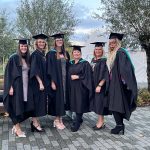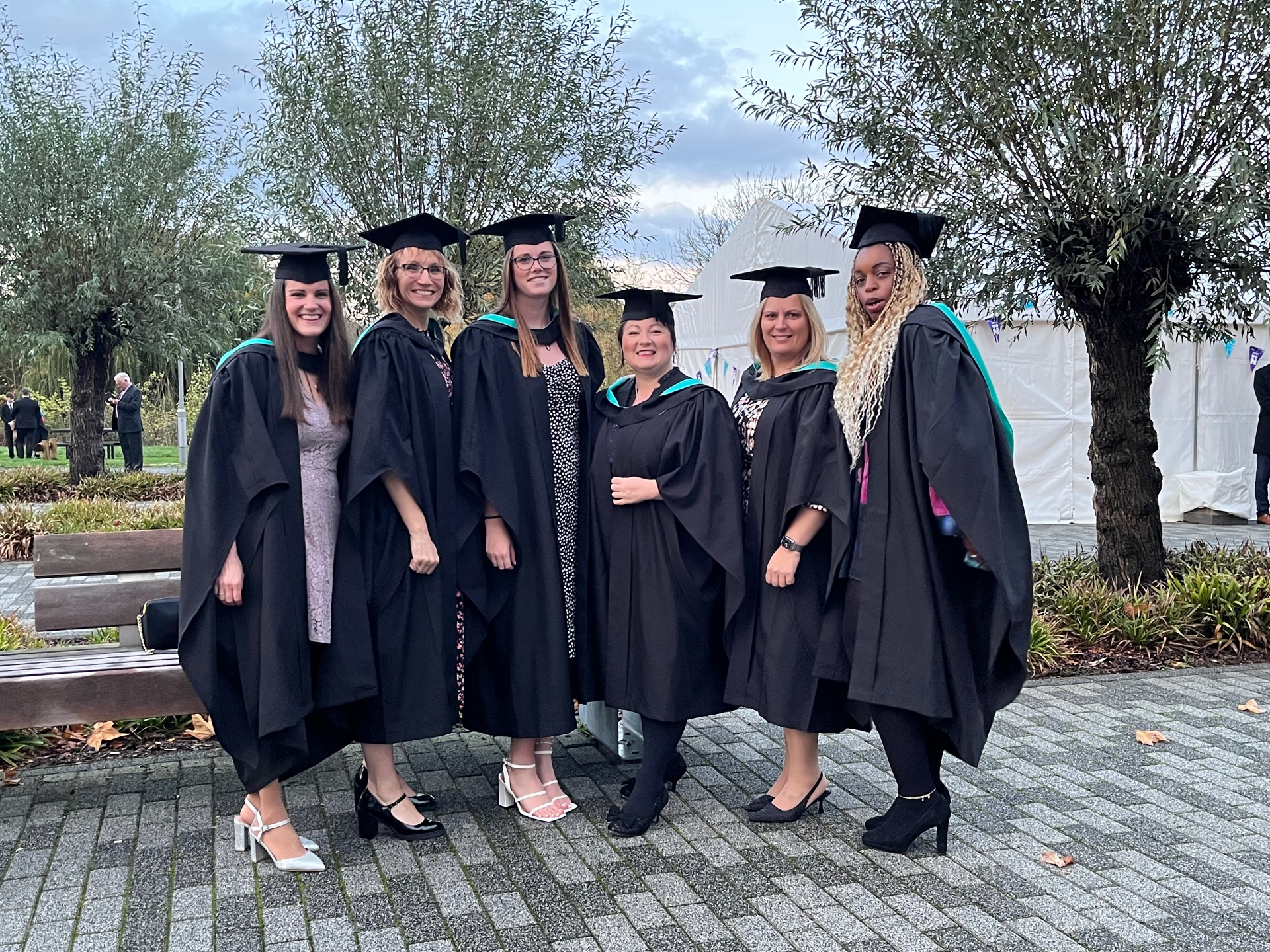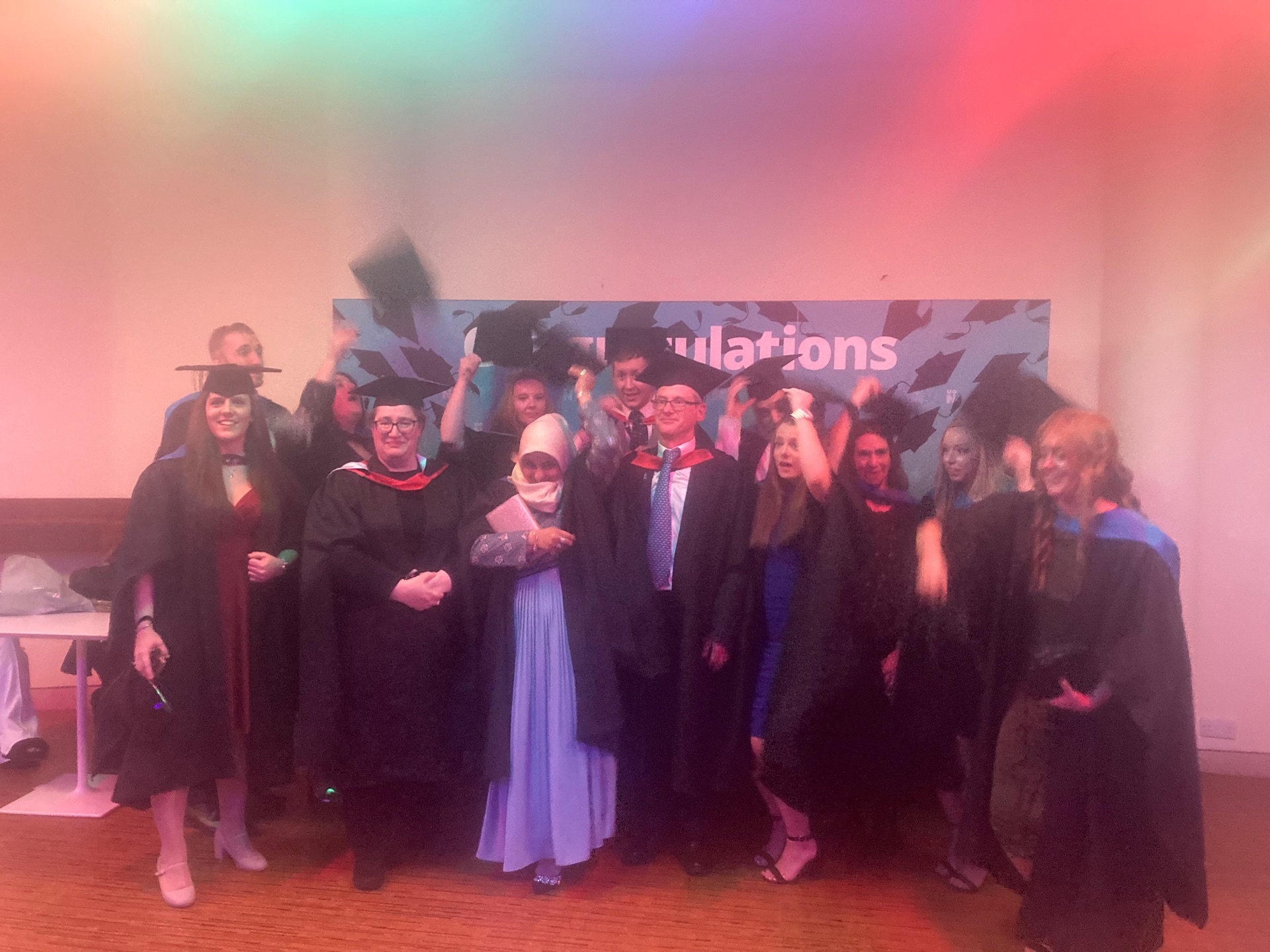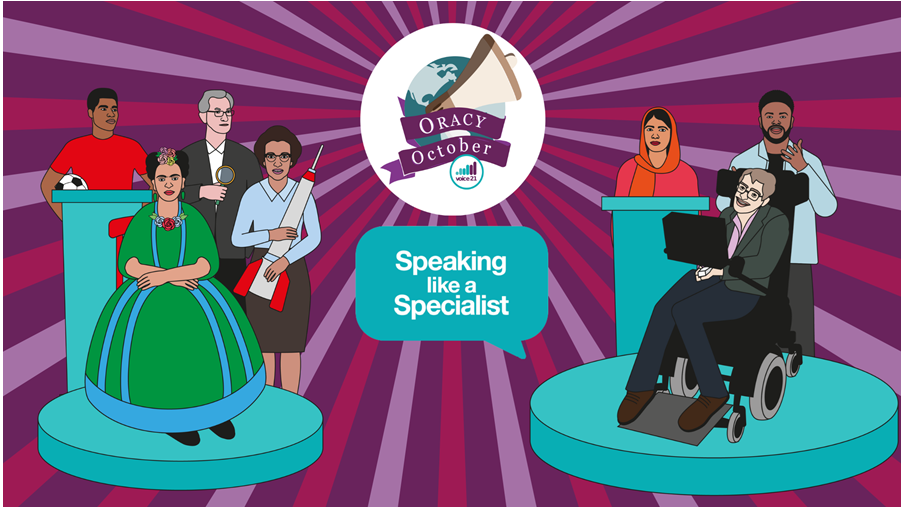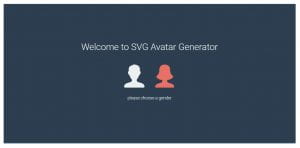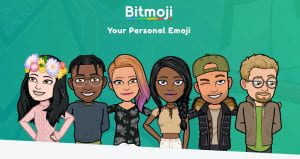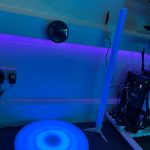
November 29, 2022
by Jean
1 Comment
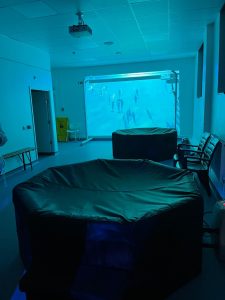 Today the FDLT Year 1 students visited a local social enterprise, VR Therapies, in St Giles Street, Northampton.
Today the FDLT Year 1 students visited a local social enterprise, VR Therapies, in St Giles Street, Northampton.
“Our magical multisensory centre features an activity room, wheelchair-accessible VR driving simulators, an interactive sensory room, and even the world-first combination of hydrotherapy with underwater VR headsets. Now everyone can experience swimming with dolphins!
We are fully accessible and inclusive, making it ideal for all ages, with staff experienced in supporting SEND and disabilities.” (VR Therapies, 2022, lines 9-12).
The students were able to hear about how virtual reality simulations, games and experiences can be used to support learning in the curriculum; help pupils prepare for new experiences and regulate their behaviour and emotions. They were also able to to see and use some of the equipment and devices that can be used at VR Therapies or brought into their own settings.
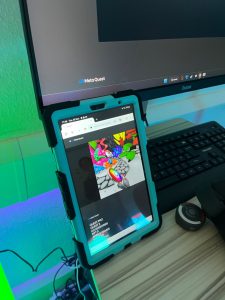 Painting in VR
Painting in VR
We had the opportunity to paint and colour in in virtual reality allowing us to control and change the environment. This gives the user a sense of empowerment and support creative exploration. It is possible for those not in the VR headset to see what is being created so that they can react and provide encouragement and support.
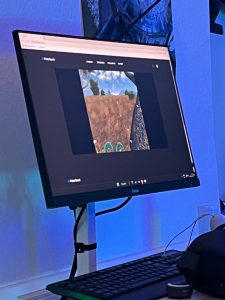 Exploring places in the real world in VR
Exploring places in the real world in VR
It is possible to explore the natural and manmade environment to support learning in subjects such as geography (Africa), science (wildlife under the sea) and many more. his acts not as a replacement for real experiences but an opportunity to access places not usually available to young children and bring their learning to life.
It is also possible to experience jobs and roles in engineering, construction, retail and other careers to get a sense of what the viewer might enjoy and be suited to and help them make decisions about their future and inspire them.
Another useful application is for pupils to be able to explore new environments that they will be visiting before they go, to boost their confidence and ease transitions.
Exploring places we can’t visit
One of the great benefits of using VR technology is the the viewer can experience and explore places it would be impossible to go to such as space, and fantasy and adventure realms. We were shown experiences based around learning about space travel and working in space as well as in more fantastical places.
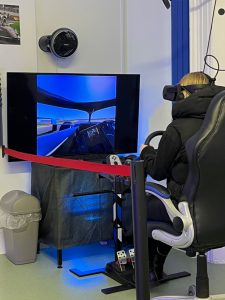 VR technology and health
VR technology and health
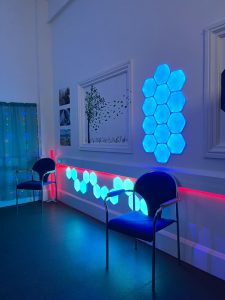 Some of the technologies Rebecca and Matt introduced us to are used to help people manage their emotions and improve their mental health. These include meditation, biofeedback and calming sensory experiences as well as opportunities to improve physical skills of co-ordination post-stroke including driving. Some of the equipment that we saw and tried gives feedback to users using lights responding to sounds and voices.
Some of the technologies Rebecca and Matt introduced us to are used to help people manage their emotions and improve their mental health. These include meditation, biofeedback and calming sensory experiences as well as opportunities to improve physical skills of co-ordination post-stroke including driving. Some of the equipment that we saw and tried gives feedback to users using lights responding to sounds and voices.
We had a comprehensive overview of the possibilities of using VR in therapies and education. We also explored using our own devices and augmented reality in the university session where we explored using Merge cubes, Google AR objects and other apps and tools that can be used in the classroom.
You can find out more about VR Therapies by exploring their website (link above, following them on Instagram (@vrtherapies), twitter (@VRTherapies) and facebook.
References:
VR Therapies (2022) Home page. VRTHerapies.co.uk [online] Available from: https://vrtherapies.co.uk/ [Accessed 29/11/2022].







